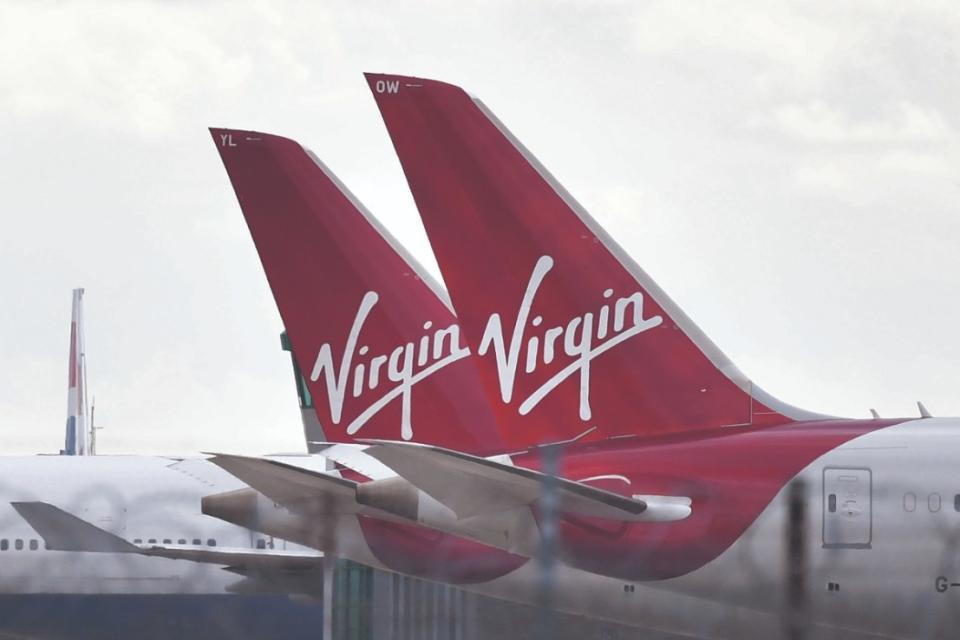Richard Branson: Virgin founder’s net worth gets a boost from Virgin Atlantic’s growth

Sir Richard Branson and his company, Virgin Group, are household names in the UK. He’s long held the title of Britain’s most famous entrepreneur and owns more than 400 businesses in everything from space to banking to cruise ships.
His net worth exceeded £4bn in 2022, making him one of the richest people in the country according to the Sunday Times Rich List.
However, his net worth has now plunged to £2.4bn, which, while flat year-on-year, is still down meaningfully from the £4bn-plus reported for 2022 and the near-£5bn reported for 2017
So, what happened to Richard Branson’s net worth?
What happened to Virgin Group?
Virgin Group capitalised heavily on the rise of SPACs in 2021.
SPACs – or Special Purpose Acquisition vehicles – had their moment in the sun during the super-low interest rate environment that prevailed after the pandemic. Hundreds of companies jumped on the bandwagon, netting huge returns for some investors.
SPACs are effectively shell companies used as props to take over private firms and bring them public.
These “blank check companies” were a major driving force behind the 2021 IPO boom. They accounted for 61% of US public listings that year. By 2022, SPACs had already dwindled to 8% of new IPOs, leaving hundreds of underperforming acquisitions and liquidated shell companies behind them.
Virgin used the SPAC boom to take two affiliated companies public, Virgin Orbit and Virgin Galatic. Both were well received by the market.
According to Bloomberg, in 2022, the group invested over a billion dollars in companies listed through these vehicles. These investments, like the rest of the market, have now stumbled. As well as Virgin Orbit and Virgin Galatic, the Virgin Group also had stakes in DNA-testing service 23andMe and the online retailer Grove Collaborative.
Satellite launch service Virgin Orbit registered for bankruptcy in 2023, less than 18 months after completing a merger with blank-check firm NextGen. Virgin Group’s stake in the business reached a high valuation of $998m (£800m) in July 2022.
The value of Virgin Galactic’s stake has also plunged.
According to the Sunday Times Rich List, the value of listed holdings owned by the group has fallen 40 per cent in the past year. The value of each has fallen more than 90 per cent since their respective peaks in 2021.
The value of Richard Branson’s portfolio
Branson’s empire is incredibly diversified: assets like a five-star hotel in Mallorca and airline Virgin Atlantic are doing well, while Virgin Group’s licensing arm is making more money than it did before the pandemic.
Virgin Group has also launched new divisions in the hotel and cruise-ship sectors.
Thanks to these arms, the group has been able to weather the worst of the stock market slump.
Virgin Atlantic, the group’s eponymous airline, has made a strong recovery from the pandemic over the past few years. Its chief executive, Shai Weiss, forecasts operating profits of more than £200m for 2024. That would be a record for the group.
Then there’s the value of Branson’s property portfolio. The Sunday Times Rich List pegs this at £300m. The total includes Branson’s private island Necker and other “ultra-luxury” Virgin Limited Edition retreats, as well as new Virgin Hotels, which are opening around the world.
A Virgin Group spokesperson said: “For more than 50 years, Virgin has built consumer-facing businesses and brands that shake up markets and create a lasting impact. During the past year, the Virgin Group has achieved significant growth and industry firsts.
“From making history with Virgin Atlantic’s Flight100 – which was the first time 100% SAF has been flown in both engines by a commercial airline across the Atlantic – to launching Virgin Hotels in New York and Edinburgh. Virgin Voyages has also achieved exponential growth in bookings and we have opened our exclusive Virgin Limited Edition Son Bunyola property in Mallorca.
“The Virgin Group continues to strengthen post-pandemic whilst successfully financing its evolving portfolio: investing in and growing businesses that demonstrate Virgin’s purpose of Changing Business for Good.”
Richard Branson’s empire has gone through decades of ups and downs: ventures like record seller Virgin Megastore, Virgin Cola, Virgin Vodka, Virgin Vie (cosmetics) and Virgin clothing have all failed or been sold only to be replaced by new enterprises.
Branson’s foray into SPAC-driven investment seems likely to be a similar dip in the cycle.

 Yahoo Finance
Yahoo Finance 